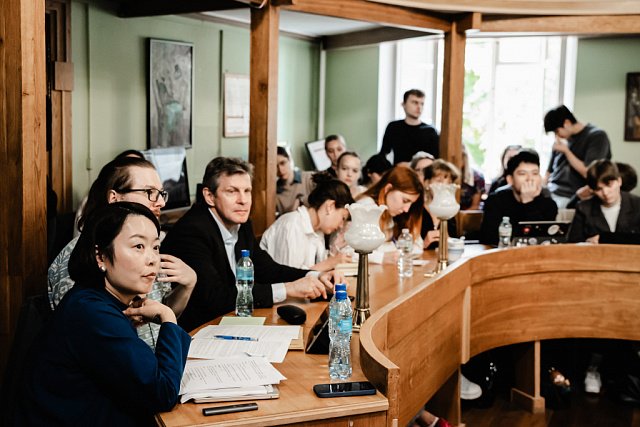
As part of the educational and scientific project “Stanislavsky and Modern Chinese Theatre”, the Russian Institute of Theatre Arts (GITIS), a partner of TV BRICS, hosted a lecture by a Chinese theatre scholar. The lecture focused on various aspects of Chinese theatre.
The project opened with a lecture on traditional Chinese theatre. Chen Tian, Head of the Department of Theatre, Film and Television at the School of Liberal Arts, Nanjing University, in an exclusive comment to TV BRICS, discussed Chinese theatre and its influence on modern society, as well as the artistic dialogue between the theatrical arts of the two countries in the 20th century.
Speaking about the dialogue between Russian and Chinese theatre, she pointed out that, on the surface, Stanislavsky’s method and traditional Chinese opera represent two entirely different systems. In Chinese opera, the performance begins with stylised external forms to represent the character, paying less attention to the depiction of the character’s inner world. However, outstanding Chinese actors use Stanislavsky’s psychological techniques to bring authenticity to their performances.
“Compared with traditional opera, Chinese spoken drama is more deeply influenced by the Stanislavsky system. Since its systematic introduction in the 1950s, the main theatre troupes and drama schools in China have continued to use this method as their foundation,” she stressed.
Chen Tian also mentioned what she considers an important case of cultural exchange between Russia and China: the visit of Peking Opera actor Mei Lanfang to the Soviet Union in 1935.
“This visit demonstrated the complex dynamics of cross-cultural theatrical exchange. Both sides misinterpreted each other, and in some cases the misinterpretations were even deliberate… I believe these historical experiences are highly meaningful, as the most creative insights often arise from misinterpretations,” said Chen Tian.
Another lecture focused on the staging of Chekhov’s plays in China. Peng Tao, Professor at the Department of Drama at the Central Academy of Drama, explained in an exclusive comment to TV BRICS that Chekhov is one of the most popular foreign playwrights among contemporary Chinese audiences. Peng Tao pointed out that the cultural adaptation of foreign works is a personal choice for each director.
“For contemporary Chinese directors, their concern is how to find new interpretations of Chekhov’s plays, interpretations that are connected with the contemporary Chinese context,” he emphasised.
The lectures also addressed the challenges faced by theatre schools in both countries. Peng Tao stated that schools should focus on developing students’ solid professional knowledge. In addition, he noted the importance of cultivating students’ cultural literacy, such as the study of theatre history, literary history, art history, and traditional Chinese culture.
Photo: Press Office of the Russian Institute of Theatre Arts
Самые
актуальные новости стран БРИКС https://tvbrics.com

